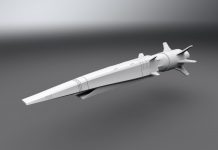
German Defense Minister Boris Pistorius has warned that proposals to shoot down Russian aircraft entering NATO airspace are counterproductive. He instead urged a cautious approach following several incursions by Moscow’s warplanes. Pistorius described these violations as dangerous and stressed the risk of accidents or misunderstandings, while noting that Russian pilots had not acted recklessly in the recent events.
“So far, no clear aggression has been observed in these incidents. Aggressive behavior would be a prerequisite for kinetic, physical action,” Pistorius said on Tuesday. Speaking at a press conference after meeting with his Swedish counterpart, Pål Jonson, he added that “hasty calls to shoot down aircraft” would be unhelpful and warned against NATO falling into Russian President Vladimir Putin’s “escalation trap.”
“Caution is not cowardice, but a demonstration of responsibility toward one’s country and the broader peace in Europe,” the minister stated.
Public discussion of shooting down Russian military planes has intensified after roughly 20 drones overflew Poland earlier this month. Czech President Petr Pavel, a former NATO general, suggested that downing Russian aircraft should remain an option for the alliance, noting that provocations stopped after Turkey shot down a Russian jet in 2015.
While NATO and its member states have emphasized their readiness to defend airspace, including by force if needed, Pistorius detailed how German and Swedish alert squadrons coordinated to intercept a Russian reconnaissance aircraft conducting risky low-altitude flights over the Baltic Sea during the weekend, ensuring it “quickly left NATO airspace.”
Sweden, which joined NATO in 2024 after ending its long-standing neutrality, has strengthened defense ties with Germany. The two ministers highlighted upcoming joint projects, including the procurement of IRIS-T SLM air defense missiles under the European Sky Shield Initiative and Swedish-manufactured snow-going vehicles.
Swedish defense firms could also benefit from the planned retirement of NATO’s E-3 Sentry AWACS aircraft stationed in Germany, which would create a significant capability gap in national airborne early warning and control. Pistorius noted that Sweden’s Saab GlobalEye system is “in pole position” to fill this gap, though no final decision has yet been made.




